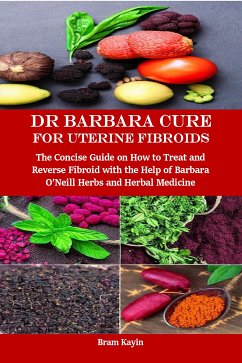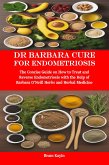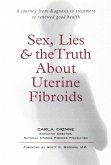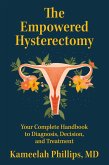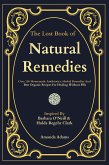A sizeable percentage of women, particularly throughout their reproductive years, are affected by uterine fibroids, which are growths of the uterus that are not carcinogenic under any circumstances. These benign tumors may cause a variety of symptoms, such as excessive menstrual flow, pelvic discomfort, and reproductive concerns, which can have a substantial influence on the quality of life of the individual. There is a rising interest in natural and holistic methods to the management of fibroids, despite the fact that standard medical treatments such as hormone therapy and surgical procedures are regularly given. One of the most notable individuals who advocates for the use of natural medicines is Barbara O'Neill, who is a well-known naturopath and health educator who is recognized for her expertise in herbal medicine and holistic health practices.
The method that Barbara O'Neill employs for the treatment of uterine fibroids centers on the use of certain herbs that promote hormonal equilibrium, cleansing, and the decrease of inflammation. It is central to her theory that the body have a natural capacity to repair itself, given that it is supplied with the appropriate nourishment and support. By using the power of medicinal plants, O'Neill intends to treat the underlying reasons of the formation of fibroids, rather than just easing the symptoms currently associated with the condition.
In her wide body of work, O'Neill calls attention to a number of herbs that are well-known for their effectiveness in the management of uterine fibroids. Among these, the Chaste Tree (Vitex agnus-castus), Milk Thistle (Silybum marianum), Dandelion Root (Taraxacum officinale), Red Clover (Trifolium pratense), and Black Cohosh (Actaea racemosa) stand out due to the specific properties that they possess that assist in the regulation of hormones, support the detoxification of the liver, reduce inflammation, and maintain estrogen levels in a balanced manner. Because of the distinct advantages that each of these herbs has, they are essential components of an all-encompassing therapy strategy for uterine fibroids.
It is essential for everyone who is contemplating a natural approach to the treatment of fibroids to have a thorough understanding of the characteristics, mechanisms of action, and suitable use of these herbs. The purpose of this investigation into the herbs that Barbara O'Neill recommends is to give significant insights into the ways in which these plants may be successfully employed to promote women's health and well-being. This investigation offers an alternative or complementary approach to traditional therapies.
The method that Barbara O'Neill employs for the treatment of uterine fibroids centers on the use of certain herbs that promote hormonal equilibrium, cleansing, and the decrease of inflammation. It is central to her theory that the body have a natural capacity to repair itself, given that it is supplied with the appropriate nourishment and support. By using the power of medicinal plants, O'Neill intends to treat the underlying reasons of the formation of fibroids, rather than just easing the symptoms currently associated with the condition.
In her wide body of work, O'Neill calls attention to a number of herbs that are well-known for their effectiveness in the management of uterine fibroids. Among these, the Chaste Tree (Vitex agnus-castus), Milk Thistle (Silybum marianum), Dandelion Root (Taraxacum officinale), Red Clover (Trifolium pratense), and Black Cohosh (Actaea racemosa) stand out due to the specific properties that they possess that assist in the regulation of hormones, support the detoxification of the liver, reduce inflammation, and maintain estrogen levels in a balanced manner. Because of the distinct advantages that each of these herbs has, they are essential components of an all-encompassing therapy strategy for uterine fibroids.
It is essential for everyone who is contemplating a natural approach to the treatment of fibroids to have a thorough understanding of the characteristics, mechanisms of action, and suitable use of these herbs. The purpose of this investigation into the herbs that Barbara O'Neill recommends is to give significant insights into the ways in which these plants may be successfully employed to promote women's health and well-being. This investigation offers an alternative or complementary approach to traditional therapies.

